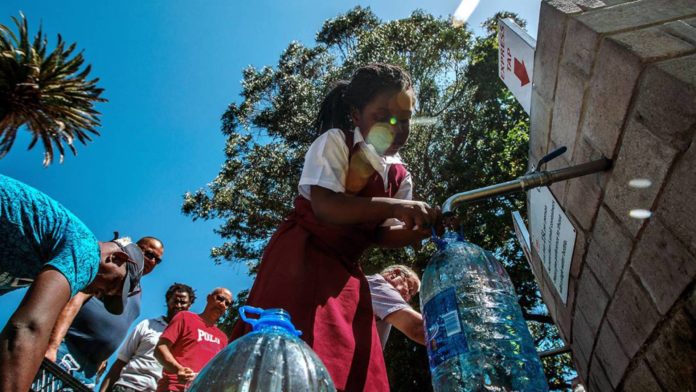At a time when climate change is making catastrophic weather events more common, boosting resilience in developing countries has become imperative. Success will depend largely on mobilizing private investment in climate-smart projects.
On the evening of March 14, tropical cyclone Idai slammed into the southeastern coast of Africa. On the same day, some 1,700 miles due north, I gathered with global leaders and climate experts at the third One Planet Summit (OPS) in Nairobi, Kenya. The two scenes could not have been more different – or more closely linked.
The humanitarian emergency triggered by Idai continues to unfold. Beira, Mozambique, with its 500,000-plus residents, bore the brunt of the cyclone’s impact. But the consequences extend much further, not least because Beira is home to the main port for some of its regional neighbors, including landlocked Malawi and Zimbabwe. An inland lake the size of Luxembourg is now displacing hundreds of thousands of people across all three countries.
At a time when climate change is making catastrophic weather events more common, Idai amounts to a stark reminder of our collective responsibility to boost resilience, especially in the most vulnerable areas. After all, as Beira’s severely strained budget makes clear, the costs of waiting for disaster to strike are much higher. According to Lloyd’s City Risk Index, even in a conservative scenario, climate-related risks could cost cities $123 billion annually, on average, in lost GDP.
The challenge will be compounded as the adverse effects of climate change on agriculture and other rural livelihoods accelerate already-rapid urbanization. In Sub-Saharan Africa, the number of urban dwellers, already in excess of 470 million, is set to double over the next 25 years. By 2050, the region is expected to account for 20% of the world’s urban residents.
But rapid urbanization can also serve as an opportunity to build climate-resilient cities. To make the most of it will require mobilizing large amounts of investment in areas like climate-smart water management, clean transport, and green buildings.
Mobilization of climate finance was a central theme at this year’s OPS, with Africa being the main region of focus. The participants, who included some of my World Bank Group colleagues, as well as heads of state, civil-society organizations, and private-sector actors, proposed the Africa Pledge, which contains a set of commitments aimed at accelerating climate action that serves the continent’s people.
CENTER FOR AFRICAN STUDIES
Center for Africa Studies (AFRAM) which located in Ankara, is an organization facilitating under the administration of African Affairs Council (AFAC). It makes various researches about Africa to enhance economic and cultural bounds between Africa and Turkey. AFRAM’s publishings has been shared with different institutions as they require to obtain.
AFRICA OBSERVATORY
Africa Observatory is one the publishing of AFRAM and it has been published each two weeks. It has been delivered to different institutions via e-mail.






